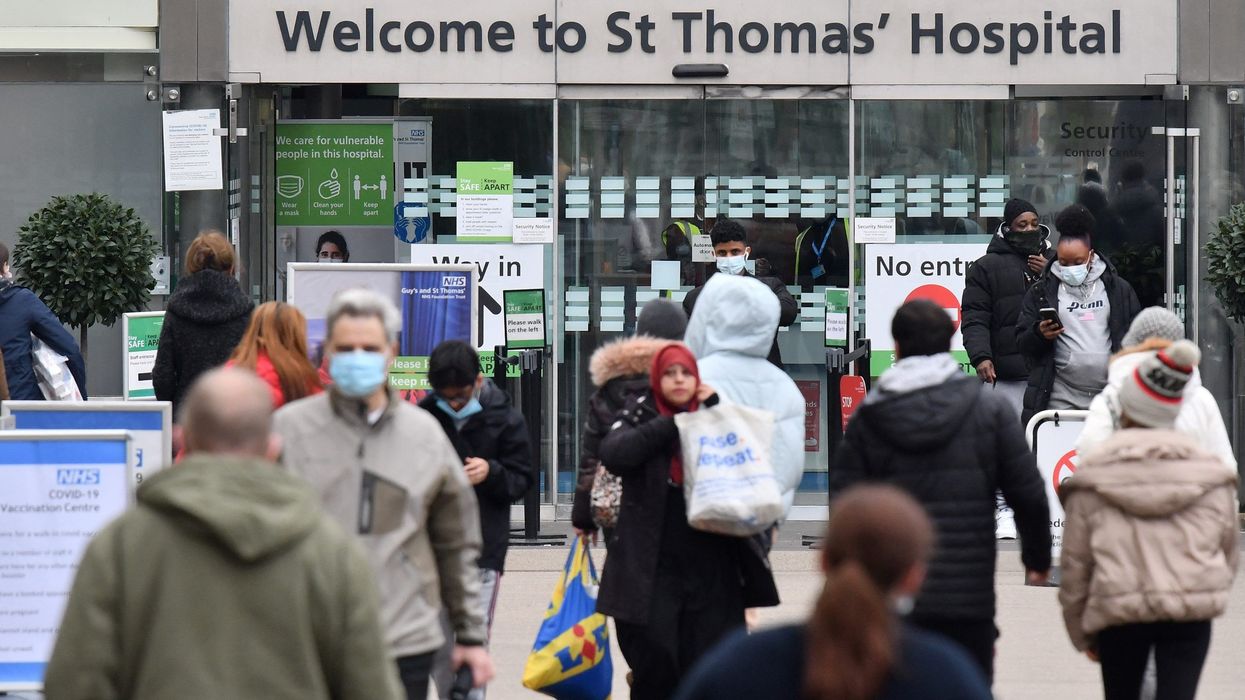THERE is a lower risk of hospitalisation for people with the Omicron coronavirus variant compared to Delta, but the higher transmissibility of Omicron could still lead to significant numbers needing hospital treatment, the UK government said.
Analysis of preliminary data by the UK Health Security Agency (UKHSA) showed an individual with Omicron was estimated to be between 31 per cent and 45 per cent less likely to attend hospital compared to someone with Delta, and 50 to 70 per cent less likely to be admitted.
UKHSA Chief Executive Jenny Harries said on Thursday it was "an encouraging early signal that people who contract the Omicron variant may be at a relatively lower risk of hospitalisation than those who contract other variants."
"However, it should be noted both that this is early data and more research is required to confirm these findings," she said.

The numbers came as Britain reported a record 119,789 new daily Covid-19 cases on Thursday (23) as the new variant swept the country.
The UKHSA's analysis is highly uncertain because of the small numbers of Omicron cases currently in hospital, inability to effectively measure all previous infections and the limited spread of Omicron into older age groups, it said.
Still, the findings add to early evidence about the severity of disease that the new variant, first identified in southern Africa and Hong Kong, can cause and are consistent with encouraging signs from studies from Imperial College London and the University of Edinburgh on Wednesday.
Transmissiblity, severity of disease and whether Omicron evades vaccines are the three big questions public health authorities and virologists are trying to answer as governments assess whether they need to take unpopular, economically damaging steps to tame the latest wave of infections.
Omicron may appear milder because people are vaccinated, or have some natural protection from prior infection. It is also possible that the virus has changed in a way that produces milder symptoms. Younger people - a large share of Omicron cases - are also less likely to suffer severe illness.
The agency said evidence showed protection against symptomatic disease waned after the second dose of a Covid-19 vaccine, and then improved after the booster.
But the data suggested the extra protection started to wane more rapidly against Omicron than Delta, being about 15-25 per cent lower from 10 weeks after the booster dose, it said.
LONDON CALLING
As of Monday, 132 people confirmed with Omicron had been treated in hospital. Over 40 per cent of hospital admissions were in London.
Of those patients admitted to hospital, 17 had received a booster vaccine, 74 people had two doses and 27 people were not vaccinated.
The vaccination status was unknown for six people, while eight had received a single dose and 14 people were reported to have died within 28 days of an Omicron diagnosis, ranging in age from 52-96 years old.
The number of people becoming infected with Omicron after having previously contracted Covid-19 has increased sharply.
Some 9.5 per cent of people with Omicron have had Covid-19 before, which the UKHSA said was likely to be a substantial underestimate, as many prior infections will have been asymptomatic and not picked up by the analysis.
(Reuters)




